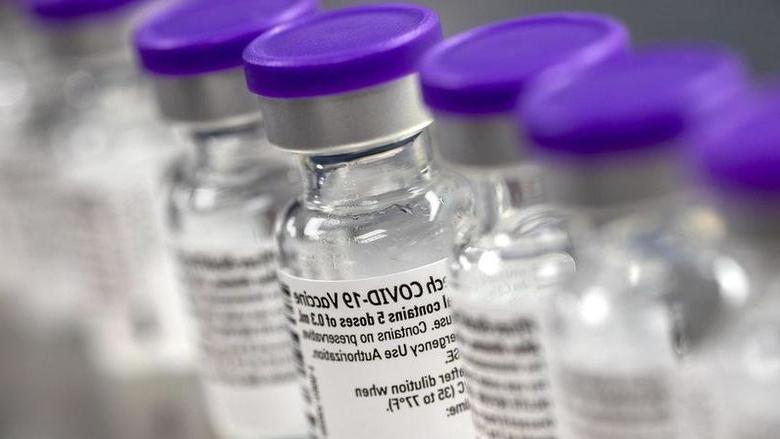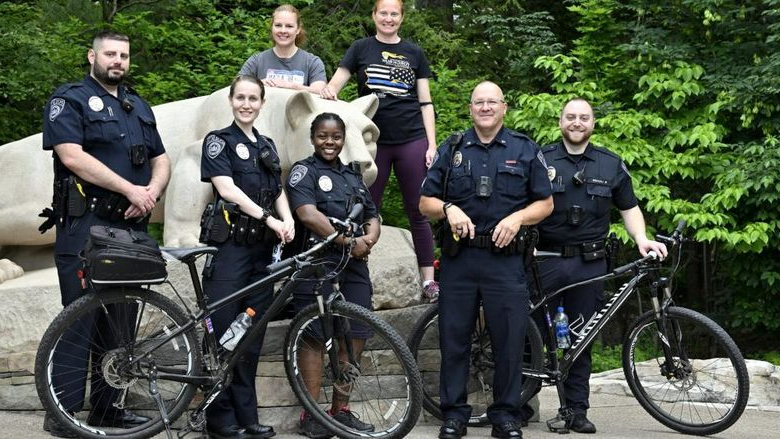
The Collegiate Recovery Program at Penn State Abington aims to help reduce stigma around alcohol and drug misuse while giving students resources to achieve and sustain recovery going forward.
ABINGTON, Pa. — Penn State Abington will launch the Collegiate Recovery Program (CRP) this fall, thanks to a grant from the Independence Blue Cross Foundation, to support students living with substance use disorder. The goal is to create a campus environment that helps those affected by alcohol and drug misuse while they stay on track to earn their degrees.
Glenn Sterner, assistant professor of criminal justice and site coordinator for the Greater Philadelphia Office of the Criminal Justice Research Center, said the CRP will help reduce stigma while providing the students with resources to achieve and sustain recovery as they move forward.
“This is an opportunity to meet the needs of all students by developing a robust programming infrastructure for students in recovery, while also educating the campus more broadly about support for those impacted by substance use. We want to be a campus that is recovery inclusive, supportive and empowering,” he said.
Michael Lavetsky, the program chair of the rehabilitation and human services major and a licensed professional counselor with extensive experience in chemical dependency treatment, will coordinate the program. It will operate within the portfolio of the campus’s Counseling and Psychological Services (CAPS) since mental health and substance use are often co-occurring disorders.
“I am a strong advocate for people in recovery, and my clinical background includes working in a clinic for those with co-occurring mental health and drug and alcohol use disorders. I also have family members in recovery, so this is extra meaningful for me,” Lavetsky said, while stressing that the CRP is not a treatment program.
“The Independence Blue Cross Foundation is committed to making inclusive recovery environments more accessible,” said Lorina Marshall-Blake, president of the Independence Blue Cross Foundation. “Supportive networks, like those offered by Penn State Abington, help students maintain their recovery, excel in school and reach their full potential.”
The program has been on a wish list for Gina Kaufman, the director of Student Affairs, for nearly a decade.
"It is wonderful to see this coming to fruition. I am excited to see the impact and support our community can provide for this special population," said Kaufman, who oversees CAPS.
The number of Abington students affected by substance use disorder is unknown, Sterner explained; however, nationwide, alcohol use including high rates of binge drinking, tobacco, vaping, cannabis and illicit drug abuse have been steadily increasing among the college-age population, according to the National Institute on Drug Abuse.
“Many of our students live in neighborhoods in Philadelphia where access to treatment services is limited. The CRP provides an opportunity to meet the needs of our student population who may be experiencing the impacts of substance use disorder either directly or indirectly, or who may be in recovery,” Sterner said.
This spring Sterner and Lavetsky are laying the groundwork for the program alongside Karen Gould, a licensed psychologist and the director of CAPS. They are participating in trainings, hosting focus groups to determine needs specific to Abington, and establishing an advisory board of Penn State faculty and staff, students in recovery and external individuals with lived experience. Sterner will chair the board.
When the program launches in August, it will include:
- A drop-in center for students to study or simply relax in a confidential environment
- Group sessions for students in recovery or those affected by loved ones with substance use disorder
- Peer counseling
- Sober recreational activities, guest speakers and targeted special events
- Alumni support and networking opportunities
The CRP concept at Abington is based on the Collegiate Recovery Community at University Park, and it is crucial to keeping students on the path toward graduation, according to Sterner.
“It is important that we integrate with the University Park model so students who start at Abington can move easily to University Park. We are the first CRP at a Commonwealth Campus, and, once we are successful, we can provide this as a model to other campuses and work systemwide to support students in long-term recovery,” he said.
Sterner said the program is built on evidenced-based practices and ongoing research will inform their work, which ultimately focuses on students.
“We want students to be aware that Abington is the place to come if you are in recovery. If you are ready, we are ready for you, and we will support you,” Sterner said.
About Penn State Abington
Penn State Abington provides an affordable, accessible and high-impact education resulting in the success of a diverse student body. It is committed to student success through innovative approaches to 21st-century public higher education within a world-class research university. With more than 3,100 students, Penn State Abington is a residential campus that offers baccalaureate degrees in 25 majors, accelerated master's degrees, undergraduate research, the Schreyer Honors College, NCAA Division III athletics and more.
About Philanthropy at Penn State
Donors like the Independence Blue Cross Foundation advance the University’s historic land-grant mission to serve and lead. Through philanthropy, alumni and friends are helping students to join the Penn State family and prepare for lifelong success; driving research, outreach and economic development that grow our shared strength and readiness for the future; and increasing the University’s impact for families, patients and communities across the commonwealth and around the world. Learn more by visiting raise.yilunjianshe.com.



